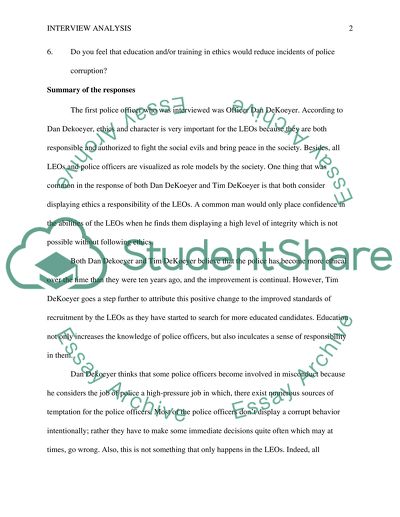Cite this document
(“Interview Analysis. The police corruption Essay”, n.d.)
Retrieved from https://studentshare.org/other/1394725-interview-analysis-the-police-corruption
Retrieved from https://studentshare.org/other/1394725-interview-analysis-the-police-corruption
(Interview Analysis. The Police Corruption Essay)
https://studentshare.org/other/1394725-interview-analysis-the-police-corruption.
https://studentshare.org/other/1394725-interview-analysis-the-police-corruption.
“Interview Analysis. The Police Corruption Essay”, n.d. https://studentshare.org/other/1394725-interview-analysis-the-police-corruption.


